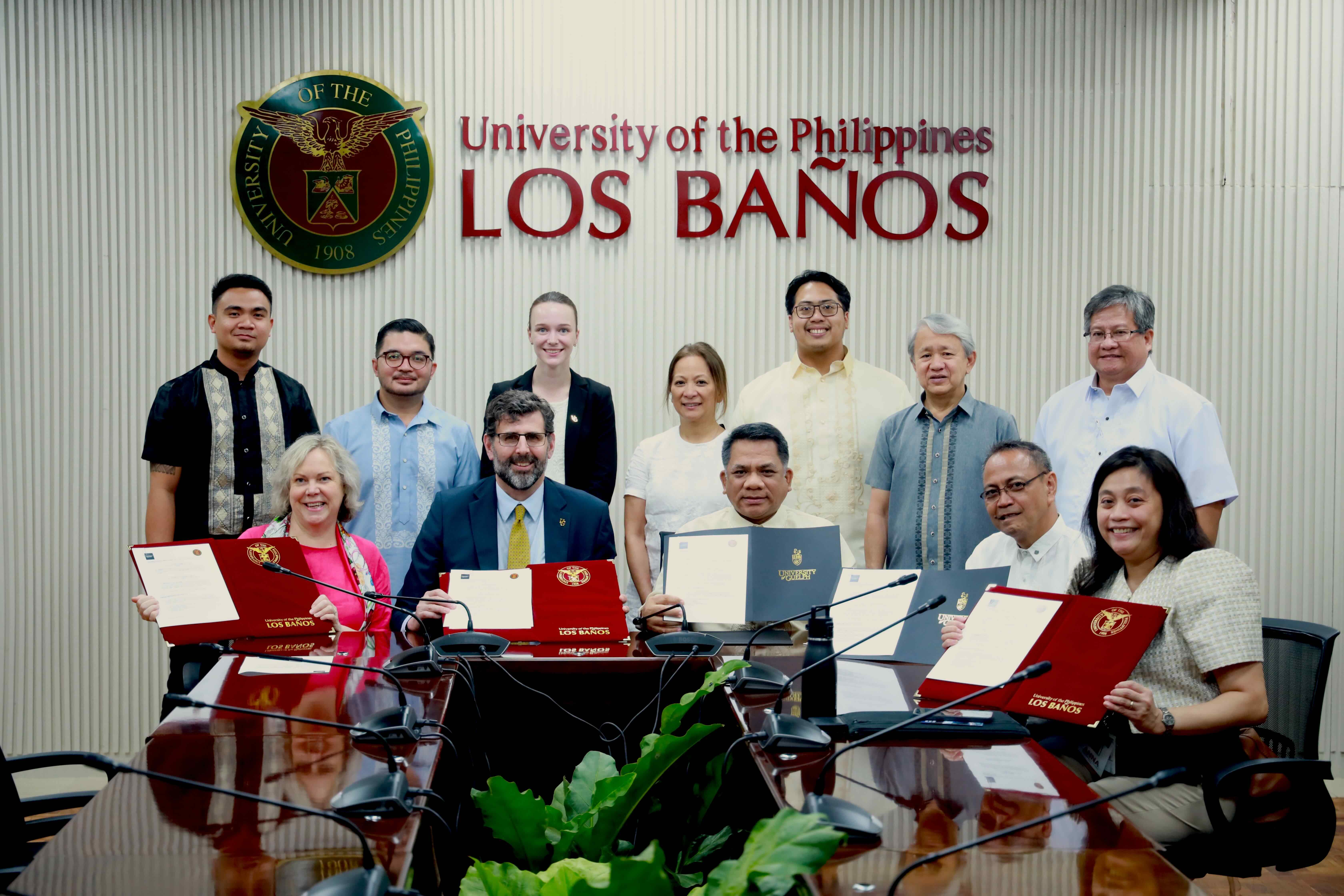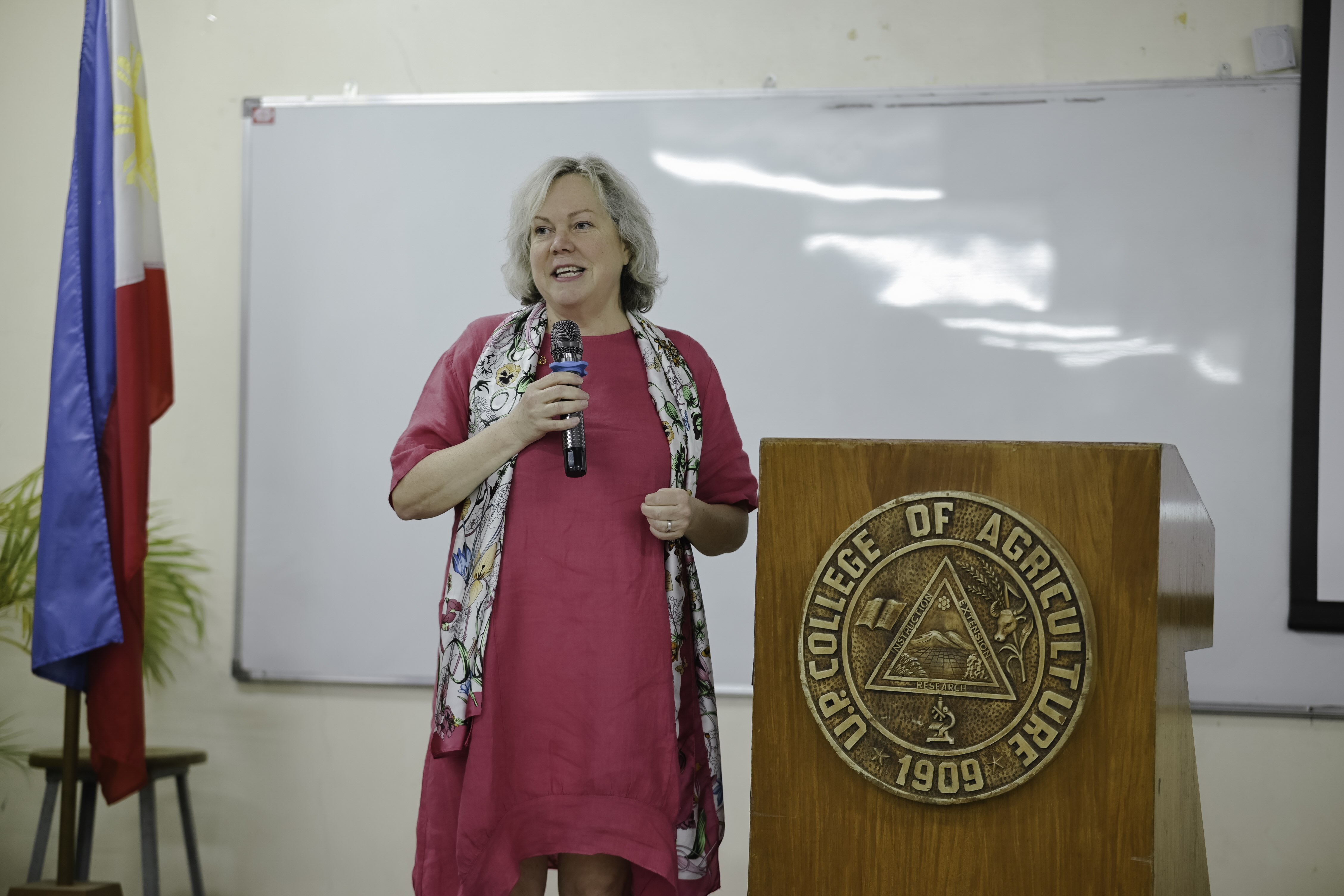The world’s top agricultural institutions are partnering to address global challenges in food security, climate resilience and sustainable development.
The University of Guelph and the University of the Philippines Los Baños (UPLB) have signed a renewed memorandum of understanding (MOU), strengthening a relationship that opens doors to student collaborations, new postgraduate programs and scholarships, joint research networks and innovative knowledge-sharing between Canada and the Philippines.
Renowned for its reputation in agriculture, environmental studies and life sciences, UPLB is a natural partner for U of G and its Ontario Agricultural College (OAC), with its 150-year legacy in agri-food research and innovation.
The MOU was signed by UPLB and a U of G delegation sent to the Philippines, co-led by Dr. Ben Bradshaw, assistant vice-president (graduate studies), and Dr. Helen Hambly, professor of capacity development and extension in OAC.

Hambly says food security and sovereignty – the ability to have high-quality, affordable and local food – is a shared goal among the two nations that the partnership will address.
“U of G has the opportunity to learn from UPLB’s rich community-based research — knowledge-gathering that is both responsible and inclusive and transforms students into global citizens,” Hambly says.
Bradshaw added, “We also have an opportunity to bring U of G’s expertise to support the Philippines to address some pressing matters in the agricultural sector, such as building climate resilience, especially among small landholders, and controlling the spread of African swine fever, which was first identified in the country in 2019.”
“This delegation is part of the University of Guelph’s initiative to partner with leading research universities around the world, as we seek to confront global challenges,” says Dr. Stuart McCook, assistant vice-president (international). “We share in UPLB’s long-standing commitment to research in food security and sovereignty, One Health, sustainability, communities and social justice, which make them a natural partner for the University of Guelph in the Philippines. This visit has affirmed a foundation for future collaborations in these areas.”
Partnership to strengthen Canada-Philippines relations
The signing of the MOU follows several years of partnership-building between UPLB and U of G, OAC and the One Health Institute. It builds on UPLB’s leadership in the Philippines-Canada Network for Sustainability (PCNS), a consortium of higher education institutions from both countries, with the support of the Canadian Embassy in Manila.
During the trip, U of G delegates met with various government agencies, including the Philippine Department of Science and Technology, Bureau of Agricultural Research and Commission on Higher Education.
“These opportunities are critical to solidifying Canada-Philippines relations amid intensifying global trade,” Hambly says, “as the Canadian government has made it clear we need to diversify our trade relations.”
Hambly’s work in the Philippines, through the non-profit Forest Foundation Philippines, supports nature-based solutions for climate adaptation led by women and youth in the country’s rural sector.
She emphasizes the mutual benefits of the renewed partnership, particularly for U of G students who can enrich their studies by learning from Filipino communities.
“When students learn about biodiversity and climate adaptation in a country so different from their own, they come to understand the similarities and differences and where we can work together,” Hambly says. “That kind of experiential learning is so critical in an age of AI.”
Other U of G delegates included: Francis Jabile, MSc capacity development and extension candidate; Carina Lang, manager of research development in the College of Social and Applied Human Sciences; and Dr. Grace Nichol, a recent PhD graduate in population medicine with a specialization in One Health.
Opportunities to exchange One Health knowledge – the holistic study of human, environmental and animal health – are also key to this partnership and could enhance both universities’ One Health education and research programs.
“We need to think inventively about how we might collaborate on training that takes advantage of our growing capacity for remote learning but still features technical, even hands-on, elements that are essential to addressing One Health challenges,” Bradshaw says.

Climate crisis, food insecurity remain global challenges
Despite their geographic differences, Canada and the Philippines share similar challenges, Hambly says.
Nearly half of Filipino households experience food insecurity, a growing concern that also affects many Canadians amid rising food costs.
Both nations are also grappling with the impacts of climate change on their biodiverse ecosystems and rural populations. With more than 7,500 islands, the Philippines requires innovative, adaptable agricultural strategies that can aid vulnerable regions – an area that U of G can both contribute to and learn from through its research on rural and remote communities.
With this renewed partnership, U of G and UPLB aim to equip the next generation of agricultural leaders to address the planet’s most urgent issues.
